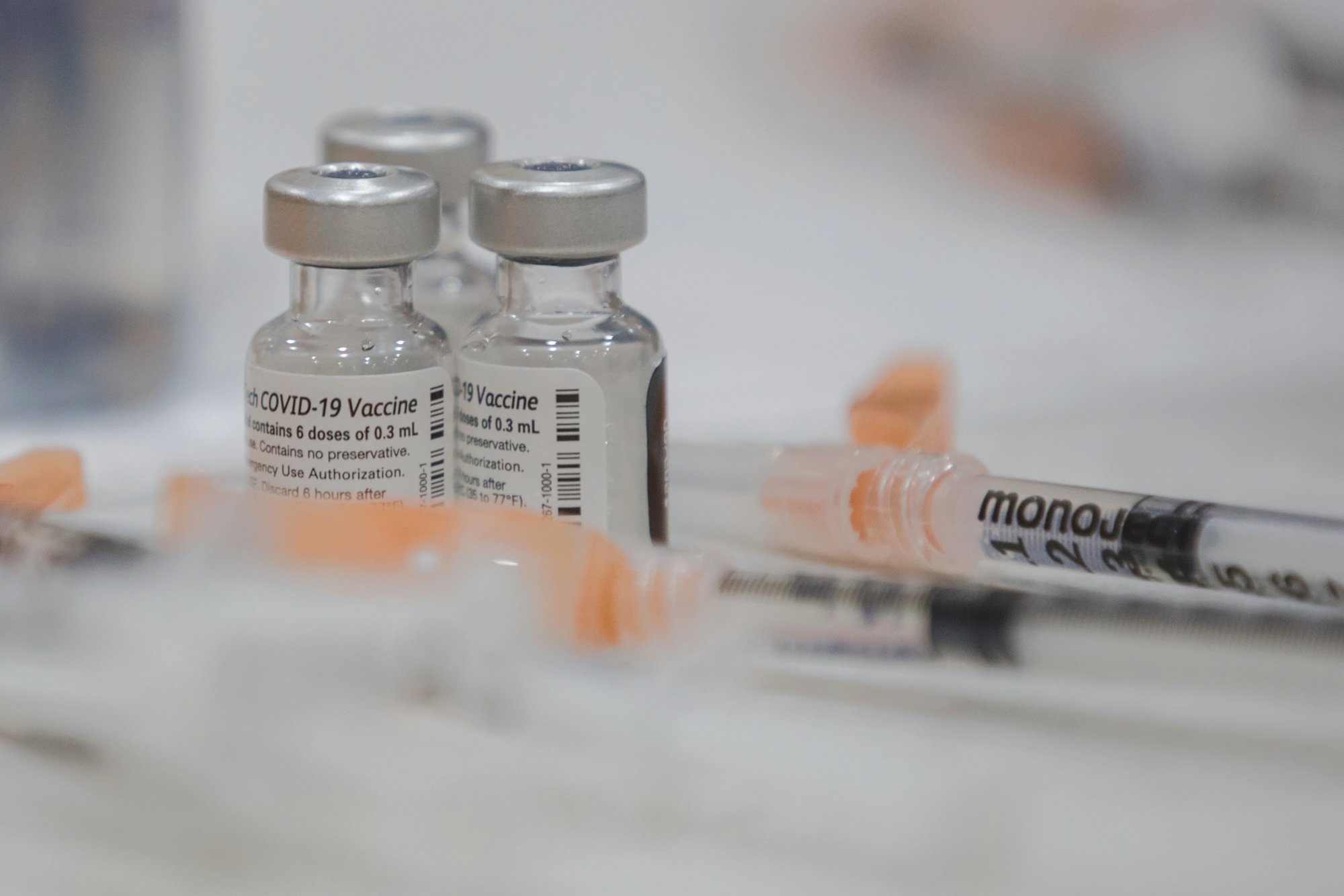S.C. Republicans vow vaccine order fight
The Associated Press
COLUMBIA — Republicans in the South Carolina House plan to meet as soon as they can to figure out how to fight back against President Joe Biden's order that all larger businesses require their employees be vaccinated against COVID-19.
In the letter Friday to his Republican colleagues, House Speaker Jay Lucas said the president's order "goes against every notion of privacy" and promises to give Gov. Henry McMaster and state Attorney General Alan Wilson whatever help they need to fight it with state executive orders or lawsuits.
Republicans McMaster and Wilson have also vowed action against the order, and Lucas said they may have to lead for now because the General Assembly is not in session and can only come back into special session for only a few items like the budget and redistricting without a two-thirds vote. Republicans hold 81 of the chamber's 124 seats — just under that threshold.
"It serves no purpose for the majority caucus in the House to coalesce around an unenforceable, unconstitutional, improper solution to an unenforceable, unconstitutional, improper problem," Lucas wrote. "More succinctly, two wrongs do not make a right."
The Republican from Hartsville said he would try to get the House Republican caucus to meet as soon as possible.
The Senate unanimously passed a bill in April preventing employers in South Carolina from mandating COVID-19 vaccines for workers with exceptions like health care workers or employees who deal with vulnerable populations. The proposal ended the 2021 session in a House committee.
Senate Majority Leader Shane Massey said the House can take up his chamber's bill.
"I really would be surprised if a federal court doesn't stop this before we can come back in session," the Republican from Edgefield said.
Biden's order requires employers with more than 100 workers to mandate immunizations or offer weekly testing.
Throughout the summer, South Carolina has remained in the bottom 10 of states for percentage of the population fully vaccinated with just under 45% of the eligible population currently at that point.
The state has been suffering another COVID-19 surge. Prisma Healthcare has more patients hospitalized with the virus than even the peak last winter before the vaccine became widely available. The health system had to postpone elective surgeries in Greenville and smaller hospitals.
Daily COVID-19 case counts that were about 150 in June have soared above 5,000. The average number of deaths each day from the virus this month has been above 40, a level only seen during last winter.
Lucas said he and his family are vaccinated, but he doesn't think government should be ordering anyone to get the COVID-19 shot.
McMaster has said repeatedly this summer he received COVID-19 shots and that being vaccinated is the best way to fight the disease.
The governor responded just hours after Thursday's order, saying on social media the president and Democrats "thumbed their noses at the Constitution" and promised to "fight them to the gates of hell to protect the liberty and livelihood of every South Carolinian."
Wilson said Biden's order created a constitutional crisis.
"With a swipe of a pen, Biden radically changed the scope and power of the presidency. He bulldozed the legislative branch and commandeered private businesses," Wilson posted on social media.
Lucas said he thinks Biden's administration is exploiting political division with vaccines for partisan gain and the COVID-19 pandemic has revealed deep fault lines. The House Speaker said his fellow Republicans must stay united to protect the people of South Carolina.
"It seems the issues around this pandemic have taken us all to a place where good and well-meaning policy is being swallowed by sound bites and petty politics," Lucas wrote.
Across the country, an AP-NORC poll conducted in August found 55% of Americans in favor of requiring government workers to be fully vaccinated, compared with 21% opposed. Similar majorities also backed vaccine mandates for health care workers, teachers working at K-12 schools and workers who interact with the public, as at restaurants and stores.
More Articles to Read

